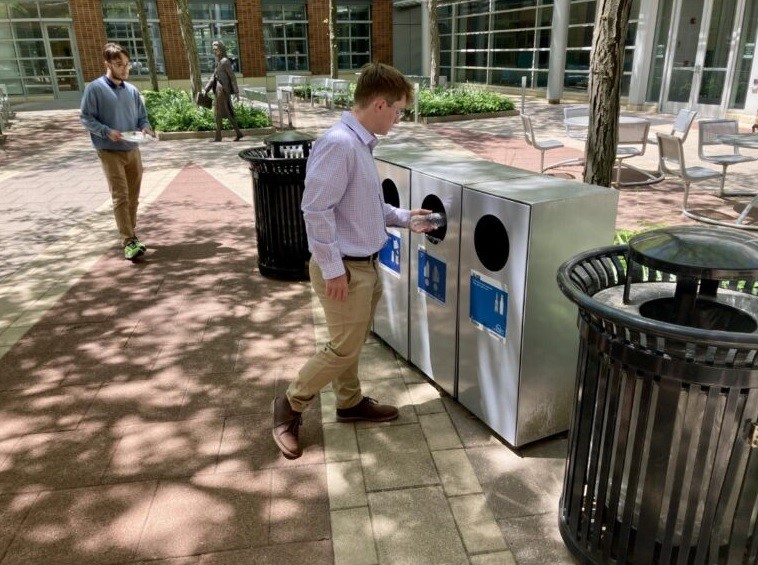

In May, the Penn State Office of Physical Plant started revising signs on the University Park campus's composting and recycling pickup containers. This modification is part of the university's execution of the Penn State Waste Stream Task Force's recommendations, which comprises professors, staff, and students.
The institution depends on its students to segregate recyclable and compostable goods from trash to reduce the quantity of garbage transported to landfills. The Centre County Refuse & Recycling Authority sells recyclable materials like aluminium cans, plastic jars, etc., collected on campus to processors who may create new products from the rejected materials.
{alcircleadd}
Aluminium cans and plastic jars, for example, can be recycled into new cans and jars. Compostable materials are sent to the Organic Materials Processing and Education Centre next to Innovation Park.
"Items marketed as compostable can be a challenge to successfully compost in certain conditions or with some equipment. We regularly audit the campus's various waste streams, including the compost collected across campus. When screening the organic material, we find a lot of non-compostable or hard-to-compost products like wax-lined plates, plastic eating utensils and straws, and miscellaneous plastics. Even items that are labelled as compostable may be very difficult for our facility to successfully compost, depending on what they are made from. On top of this, the compostable and non-compostable version of many consumable goods often look identical, leading to confusion and, ultimately, contamination," said Ayodeji Oluwalana, Penn State's waste reduction and recycling program manager.
There have been significant developments in the markets for recyclable materials like aluminium cans, bottles, plastic jars, etc. and the number of compostable items accessible in recent years. These developments have necessitated a re-examination of the university's trash collection strategy, emphasising collecting items so that they may be recycled or composted and reused after collection.
With institution Park's compost collection, the institution will adopt a "food waste only" policy. In recent years, the increase in biodegradable items such as cutlery, drinkware and bags has created operational issues at OMPEC. The facility processes around 1,500 tonnes of organic waste each year, ranging from food scraps to landscaping detritus, and sends most of that compost, along with wood chips and mulch, back into campus landscaping.
“Operationally, a clean waste stream is critical to increasing the success of our campus compost and recycling efforts. We continually work hard to identify long-term solutions to reducing the university’s dependence on landfills and appreciate the university community’s help and interest in this important effort,” stated said Meghan Hoskins, director of operations and partnerships at the Penn State Sustainability Institute.



Responses






